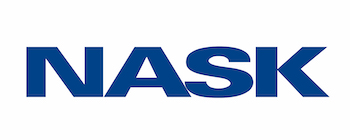| ||
| 58th Conference on Decision and Control - Nice, France - December 11th-13th 2019 | ||
|
Organized by
Unique visitors: 172006 Total Page views: 33332 (Since February 1st, 2018) Contact the webmaster Credits photo: Office de Tourisme de Nice, France Credits logo: Tania Canudas de Wit |
Special sessions about the following topics will be presented:
Time: 12:15 - 13:30, Wednesday, December 11, 2019 Abstract: Mitsubishi Electric Research Laboratories (MERL) is a leading research organization located in Cambridge, Massachusetts, USA that conducts fundamental research for industrially-motivated problems. In this talk, we will present an overview of research activities at MERL, including fundamental controls research and the application of state-of-the-art control techniques to a variety of products. We will focus on fundamental research topics including model predictive control and the control of constrained systems, estimation and motion planning for autonomous systems, and learning for control. In addition, we will describe how these fundamental research areas have impacted applications such as autonomous vehicles, energy-efficient HVAC systems, high-precision manufacturing, traffic control, and spacecraft guidance and control. Speakers:Karl’s Berntorp research is on statistical signal processing, motion planning, sensor fusion, and optimization-based control, with applications to automotive, aerospace, transportation, and communication systems. His work includes design and implementation of nonlinear estimation, constrained control, and motion-planning algorithms. Rien's Quirynen research interests are in model predictive control and moving horizon estimation, numerical algorithms for (nonlinear) dynamic optimization and real-time control applications. His doctoral research was focused on numerical simulation methods with efficient sensitivity propagation for real-time optimal control algorithms.
Time: 12:30 - 13:30, Wednesday, December 11, 2019 Abstract: As a National Research Institute executing governmental cybersecurity tasks on one hand and providing commercial IT services on the other, NASK is in constant need of technological solutions that prove to be both secure and efficient. Rapidly changing patterns of cyberattacks and ever-growing demand for computing capacity result in excessive costs of network services. Therefore we are focused on developing solutions for cybersecurity and energy-efficient data center management. Our recent findings show that challenges arising in these areas call for the application of adaptive control theory. And it all started with one equation… Speaker: Michał Karpowicz is Assistant Professor of Computer Science and Head of IT Systems Engineering Department at NASK National Research Institute for Cybersecurity & AI. He received his B.S., M.S., and Ph.D. from the Institute of Control and Computation Engineering at the Warsaw University of Technology. His research interests include control theory, signal processing, and game theory.
Time: 18:30 - 20:30, Wednesday, December 11, 2019 Building on the success of the past several events, the 2019 CDC will feature the "Meet the Faculty Candidates" poster session. This poster session provides a great opportunity for faculty, search committee members, and recruiters to speak directly with current graduate students and postdoctoral researchers who are seeking faculty positions. Faculty candidates, registered for the conference, are invited to register for this poster session by completing this online registration form by Presenters are asked to bring a poster no larger than 3ft x 4ft (A0 format) along with pushpins to attach the poster. Presenters will likely be more successful providing high-level discussions of their work such as motivation, strategies, unique insights, rather than narrow mathematical detailed discussions, unless asked specifically for those details. Presenters are also encouraged to bring copies of their CV for distribution. If you have questions please contact Antoine Chaillet at antoine.chaillet@centralesupelec.fr Recruiters: meet great faculty candidates ! This year, more than 40 faculty candidates will introduce themselves through a poster. If you are looking for brilliant and dynamic candidates, feel free to visit! No registration is needed.
Time: 12:15 - 13:45, Thursday, December 12, 2019 Abstract: Reinforcement learning is getting a lot of attention lately. People are excited about its potential to solve complex problems in areas such as robotics and automated driving, where traditional control methods can be challenging to use. In addition to deep neural nets to represent the policy, and algorithms to train them, reinforcement learning requires repeated exploration of the environment. As such exploration is time consuming and potentially dangerous when done with the hardware, a simulation model is often used to represent the environment, at least for the initial training.
Speaker: Craig Buhr
Time: 12:15 - 13:15, Thursday, December 12, 2019 ERC grants support individual researchers of any nationality and age who wish to pursue frontier research in any field of science. The ERC encourages in particular proposals that cross the disciplinary boundaries, pioneer ideas that address new and emerging fields and applications that introduce unconventional and/or innovative approaches. |
Key dates (2019)
Corporate Sponsors
Become a Platinum, Gold, Silver, Bronze, Copper Sponsor for the 58th CDC and place your banner here Gold Sponsors
Silver Sponsors
Bronze Sponsors
Copper Sponsors
Click here to see the complete list of sponsors and exhibitors |
|||||||||||||||||||||||||||||||||||||||||||||||||||||||












